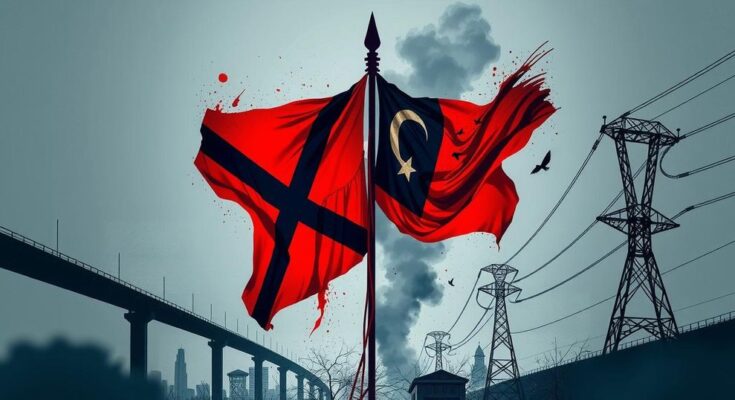Russia and Ukraine have accused each other of recent infrastructure attacks despite agreeing to a limited ceasefire. President Putin temporarily halted attacks on energy facilities, while Zelenskyy pushed for U.S. oversight of energy monitoring. A significant prisoner swap occurred, amidst ongoing drone attacks leading to injuries and infrastructural damage. A UN report reveals systematic torture and enforced disappearances by Russia since the invasion.
On Wednesday, Russia and Ukraine exchanged allegations of air attacks that resulted in fires and infrastructure damage, shortly after leaders from both countries had agreed to a limited ceasefire on energy infrastructure. Russian President Vladimir Putin had previously consented to a temporary halt in assaults on Ukraine’s energy facilities, yet he did not agree to a broader 30-day ceasefire proposed by U.S. President Donald Trump during a phone conversation on Tuesday.
Ukrainian President Volodymyr Zelenskyy had endorsed the 30-day ceasefire before the Putin-Trump call, subsequently agreeing to the more confined ceasefire regarding energy targets. During a briefing in Helsinki with Finnish President Alexander Stubb, Zelenskyy emphasized that Putin’s assurances were inadequate and indicated Ukraine’s intention to provide a list of energy facilities for U.S. and ally monitoring. He stated, “I really want there to be control. But I believe that the main agent of this control should be the United States of America.”
Earlier in the day, Zelenskyy engaged in a conversation with Trump, who described their discussion on social media as a “very good telephone call” lasting an hour—reportedly their first discussion since a previous contentious meeting. Trump mentioned that his administration would soon furnish more details regarding the call’s context and outcomes. Meanwhile, the Russian Defense Ministry announced a prisoner exchange with Ukraine, involving the swap of 175 soldiers from each side, facilitated by the United Arab Emirates.
In hostile developments, the Ukrainian military reported that their air defense units intercepted 72 of the 145 drones launched by Russia in overnight assaults, while 56 drones were reportedly lost due to Ukrainian electronic intervention. The Russian Defense Ministry claimed to have destroyed 57 of Ukraine’s drones, although only the number destroyed was disclosed, not the total number launched by Ukraine. Kremlin spokesperson Dmitry Peskov voiced concerns regarding Ukraine’s alleged failure to honor the ceasefire, asserting attempts to attack Russian energy infrastructure occurred simultaneously.
Authorities in Krasnodar, Russia, reported that a Ukrainian drone strike ignited a minor fire at an oil depot, necessitating the evacuation of 30 employees, though no injuries occurred. In Ukraine, drone attacks from Russia damaged two hospitals in Sumy, displacing patients without casualties, while a civilian was injured and property was damaged in the Kyiv region. Russia also targeted Ukraine’s railway power system in a drone attack in the Dnipropetrovsk region.
In light of the ongoing conflict, European Union leaders are scheduled for a meeting to discuss aid for Ukraine. A UN commission has accused Russia of engaging in “widespread and systematic” enforced disappearances and torture against Ukrainians since the 2022 invasion. Many civilians have reportedly been detained or deported to Russia, facing torture and sexual violence. The report also indicated various instances of sexual assaults against female detainees. Britain’s ambassador to the UN condemned the findings, highlighting the severe maltreatment of detainees, while Russia’s mission in Geneva dismissed the report as politicized and one-sided.
In summary, both Russia and Ukraine are engaged in mutual accusations concerning recent attacks on infrastructure, despite a temporary ceasefire agreed upon by their leaders. President Zelenskyy emphasizes the need for monitoring by the United States, while the unfolding situation raises serious humanitarian concerns amid prisoner exchanges and allegations of extensive torture. As European leaders convene to discuss support for Ukraine, the conflict continues to escalate, underlining the critical need for diplomatic solutions and humanitarian interventions.
Original Source: www.cbc.ca




